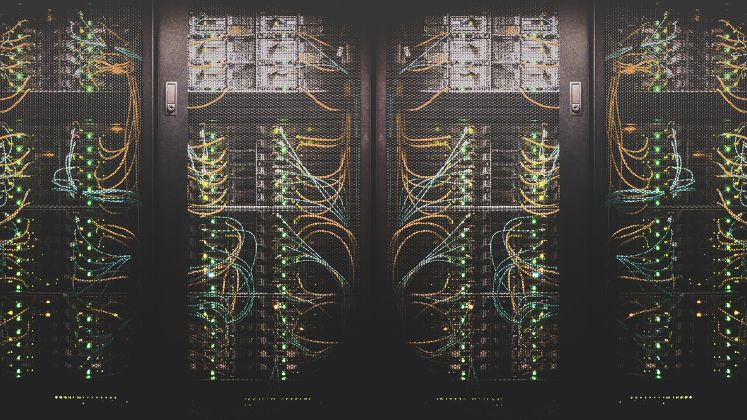Drawing on the findings of a sustainability review of the Directory of Open Access Journals (DOAJ), Joanna Ball and Andrea Chiarelli reflect on why funding this type of resource is a complex endeavour. They consider challenges shared by all open scholarly infrastructures and tease out upcoming changes to DOAJ’s support mechanisms.
Just after its 20th anniversary, the Directory of Open Access Journals (DOAJ) is about to reach a total of 20,000 indexed journals from around the world – an almost 70-fold expansion since its launch in 2003 with only 300 titles! DOAJ is part of a growing set of open scholarly infrastructures, meaning platforms that are freely accessible to everyone, aim to foster a global community of knowledge sharing, as well as sharing a commitment to open source. Examples that readers may be familiar with include Crossref, CORE, the Directory of Open Access Books, Europe PMC and Unpaywall – to name a few.
DOAJ was started because, in 2003, there was no catalogue of open access journals: many titles were not integrated into the existing scholarly literature environment and, as a result, could not be easily found. DOAJ sought to fill this gap, by providing a list of trusted journals that all scholarly communication stakeholders could find and use. DOAJ has since evolved to be a large community of expert staff and specially trained volunteers. Their roles are multifaceted, extending well beyond reviewing the accuracy and validity of existing records to evaluating nearly 10,000 new applications against DOAJ’s quality criteria each year. The team also deliver training, foster community connections, manage fundraising efforts and oversee the overall management of this independent, non-profit organisation.
Now that information on almost any topic is freely accessible at our fingertips, it is easy to underestimate the resources required to keep an open scholarly infrastructure like DOAJ running. To address this gap and to review its current business model and value proposition, DOAJ worked with Research Consulting and engaged with key stakeholders and supporters. Here, we aim to explore some of our findings as well as the fact that ’free’ or ‘open’ seldom equates to ‘without cost’.
Why is funding open scholarly infrastructure so challenging?
Open scholarly infrastructures are often led by academic institutions, libraries and non-profit organisations and are supported by a variety of funding sources, including:
- Grants and donations from philanthropic foundations, government or other organisations interested in promoting open science.
- Organisational support from universities, research institutes, libraries and consortia, publishers and for-profit data providers, particularly where these directly benefit their key audiences.
- Membership or supporter fees where institutions, researchers or users pay an annual fee to support the maintenance and development of the platform.
- Provision of specific services for a fee, such as faster processing times or advanced analytics, while keeping the basic usage free.
- Funding schemes supported by cross-sector organisations such as SCOSS and Invest in Open Infrastructure, which help channel funds towards open, community-owned infrastructures.
As the core principle of open scholarly infrastructure is to provide free access to information, there are inherent limits to the generation of revenue through user fees or subscriptions (see, for example, the Principles of Open Scholarly Infrastructure mentioned). This presents a unique challenge when compared to commercial business models and is one of the reasons why a mix of mechanisms is often pursued.
Other challenges are that budget constraints of potential supporters like academic institutions, libraries and consortia make it difficult to provide consistent financial support, and the fact that grants and donations can provide initial funding but are often not suitable as a long-term funding strategy. The variation in funding streams and economic circumstances around the world also complicates matters, as different amounts may be available to potential supporters in different regions.
Sustainable growth requires evolving strategies
Over the past few years, DOAJ’s operations have grown significantly. The number of applications and updates received each year continues to increase, alongside the task of reviewing already-indexed journals. Additionally, in recent years, DOAJ has established a specialist Quality Team to deal with the increasing incidence of questionable publishing practices. This team now carry out around 260 separate investigations each year into journals or publishers. Their investigative work is thorough, detailed and resource-intensive, but also essential for the community to continue to rely on DOAJ as a source of trusted journals.
In this context, DOAJ needs to adapt to ensure continuity and future sustainability: the shifting landscape has highlighted that greater resources are required to continue providing an open, globally representative and trusted service.

Fig.1: Annual applications and updates to DOAJ.
Finding a tailored solution to a shared problem
Given the challenges outlined above, the DOAJ sustainability review demonstrates that DOAJ, as well as other open scholarly infrastructures, need to carve out distinct value propositions that resonate with different communities and, as a result, maximise opportunities for external support.
The key here is adaptability, and, as a small organisation, DOAJ has the ability to adapt. Tailoring their approach to their specific context and the needs of their community can, in principle, enable open scholarly infrastructures to navigate the funding challenges they face. This is, unfortunately, easier said than done: although they play a critical role in the research ecosystem, open scholarly infrastructures often do not receive the same level of recognition or financial support as commercial data providers. DOAJ’s sustainability review, alongside the experience of adopting the Principles of Open Scholarly Infrastructure (POSI) and piloting the FOREST framework, led to the identification of three strands of work for the short to medium term:
- Trust: Strengthening the governance structure and legal model, including clarifying the role of ambassadors and volunteers.
- Sustainability: Streamlining, simplifying, and improving the transparency of the existing support models for libraries and publishers, seeking to align with the SCOSS model.
- Fair use: Monetising large-scale commercial usage of DOAJ data dumps and the DOAJ API.
To realise its vision in the longer term, DOAJ will also need to scale up operations and invest in its technical infrastructure: the use of grant funding or similar mechanisms will be key in this case. Technical growth will enable more comprehensive coverage of trusted journals, for example by supporting collaborations with regional indexes such as AJOL, Latindex, Redalyc and SciELO.
Despite the funding challenges they face, open scholarly infrastructures make a conscious choice to prioritise their core value proposition and add value, all while maintaining alignment with the core principles of open sharing. In an ever-evolving landscape, open scholarly infrastructures like DOAJ are determined to navigate funding opportunities and prioritise their mission of fostering a global knowledge sharing community. By promoting open access to research, they will continue to break down barriers and help democratise knowledge for all.
More information on upcoming changes to DOAJ’s support models and governance will be shared over the summer and autumn via their blog.
The content generated on this blog is for information purposes only. This Article gives the views and opinions of the authors and does not reflect the views and opinions of the Impact of Social Science blog (the blog), nor of the London School of Economics and Political Science. Please review our comments policy if you have any concerns on posting a comment below.
Image Credit: Eran Menashri via Unsplash.








2 Comments